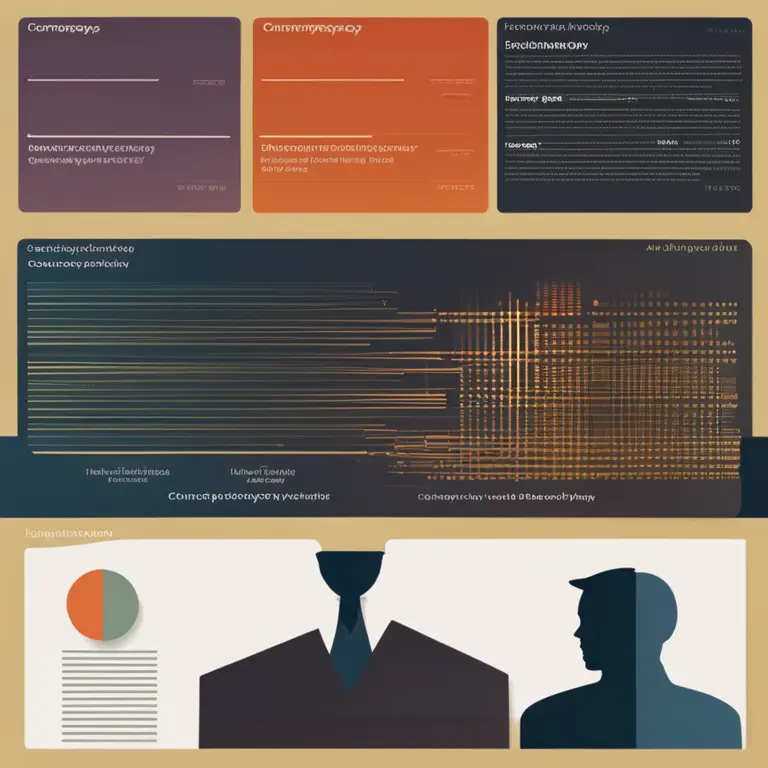
The Essence of Biological Rhythms in Psychology
Delve into the impact of biological rhythms on our psychology with this in-depth article covering the fundamentals and future implications.
article by Adrian Wallace
The Basics of Biological Rhythms
Biological rhythms, intrinsic oscillations within living organisms, punctuate the fabric of human existence. Psychologically, these rhythms orchestrate our mental states, behaviors, and cognitive functions. They are the invisible conductors of our physiological symphony, ensuring that bodily processes occur at optimal times. From the well-known circadian rhythm, which aligns with the 24-hour day-night cycle, to the less familiar ultradian and infradian rhythms, these temporal patterns affect everything from sleep cycles to hormonal fluctuations. The study of these rhythms, known as chronobiology, has revealed how they influence mood, performance, and overall well-being.

Chronopsychology: Timing and Behavior
Chronopsychology, a sub-field within psychology, scrutinizes the interplay between biological rhythms and psychological processes. It recognizes that cognitive abilities, such as attention and memory, are not constant throughout the day. Research has consistently shown that our alertness and cognitive prowess peak at certain points, usually during late morning hours. This prime time is when many individuals perform complex tasks more efficiently. Chronopsychology thus informs practices in clinical settings, educational environments, and workplaces, promoting schedules that harmonize with our natural propensities for heightened performance.

Advancements in Chronobiological Research
Emerging research continues to elucidate the intricate connections between our biological clocks and mental health. The prevalence of mood disorders like Seasonal Affective Disorder (SAD) and the sleep disturbances found in numerous psychiatric conditions foreground the importance of these rhythms. In light of such findings, treatments are increasingly focused on re-aligning these biological rhythms through light therapy, sleep hygiene, and pharmacological interventions. Future research endeavors aim to harness genetic insights and wearable technology to propel personalized medicine forward, tailoring interventions to individual chronotypes.

Biological Rhythms and Lifestyle Choices
The intersection of biological rhythms with our lifestyle choices cannot be overstated. Sleep hygiene, dietary patterns, and exercise all echo within our rhythmic biological framework. The timing of meals, for example, interacts with our metabolism in ways we are just beginning to understand, affecting weight management and energy levels. Similarly, the timing and nature of exercise can accentuate or diminish its physiological benefits. Public health recommendations increasingly emphasize respecting our biological rhythms to promote sustainable health and prevent chronic diseases.
Technological Innovations and Future Implications
Technological advancements are paving the way for unprecedented monitoring and adaptation to individual biological rhythms. Wearable tech that measures activity, sleep, and even hormonal fluctuations has burgeoned into a valuable tool for personal health management. Furthermore, artificial intelligence and machine learning are poised to analyze these biometric data streams, offering personalized insights and recommendations. As technology becomes increasingly intertwined with our biological clocks, the potential to enhance our psychological well-being grows exponentially.
Published: 1/30/2024
Modified: 1/30/2024
More predictions
Come back here soon to learn more about yourself and your future


The Rhythms Within Science: A Guide to Biorhythms
Delve into the science of biorhythms to grasp how the physiological cycles influence our lives. This guide breaks down the complexity of biorhythmic patterns.


The Rhythms Concept: A Guide to Biorhythms
Discover the intriguing concept of biorhythms: the cyclic patterns influencing our physical, emotional, and intellectual states.


Unlocking The Biorhythms Guide
Delve into the fascinating world of biorhythms to learn how they influence your physical, emotional, and intellectual states, potentially shaping your daily life and decisions.